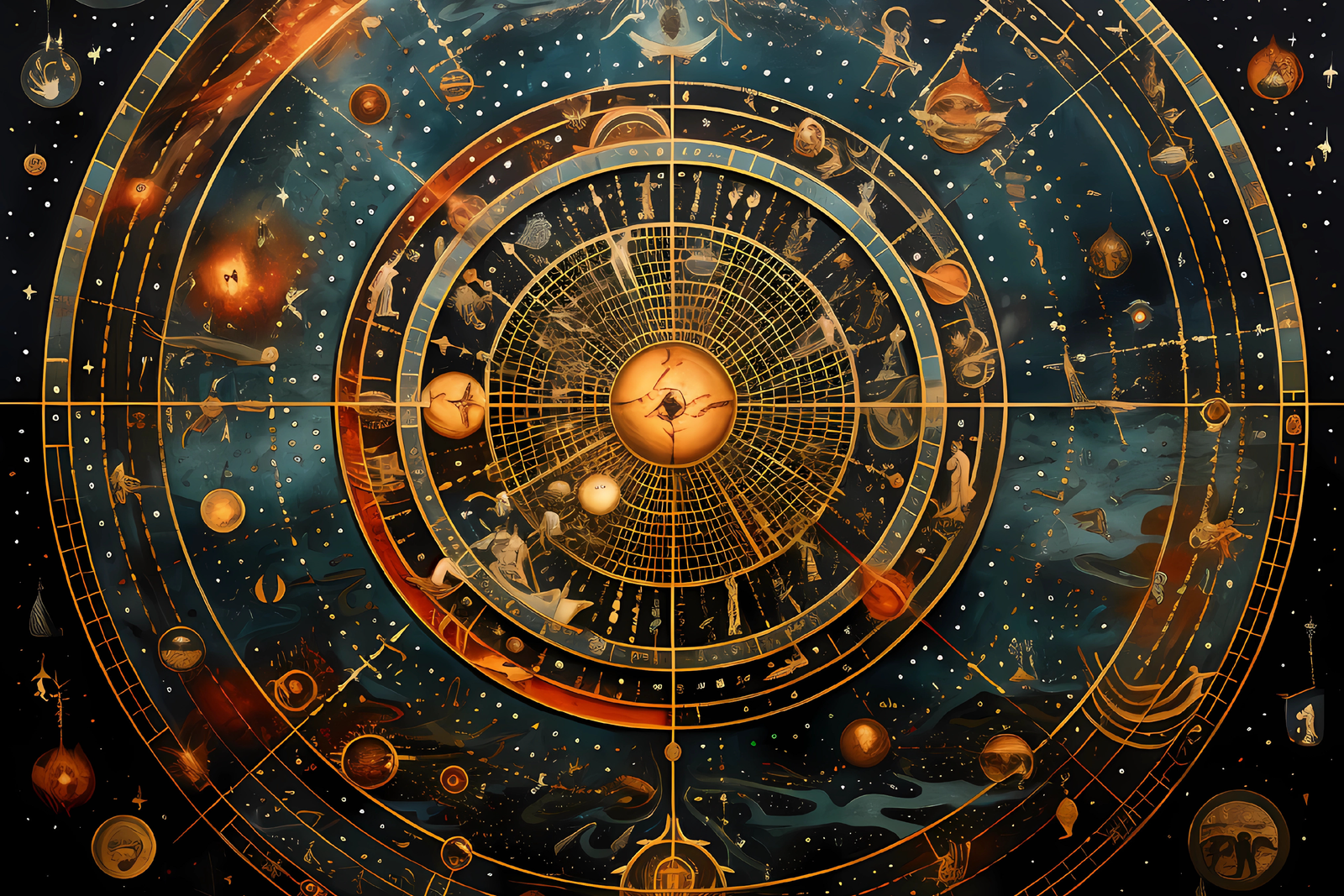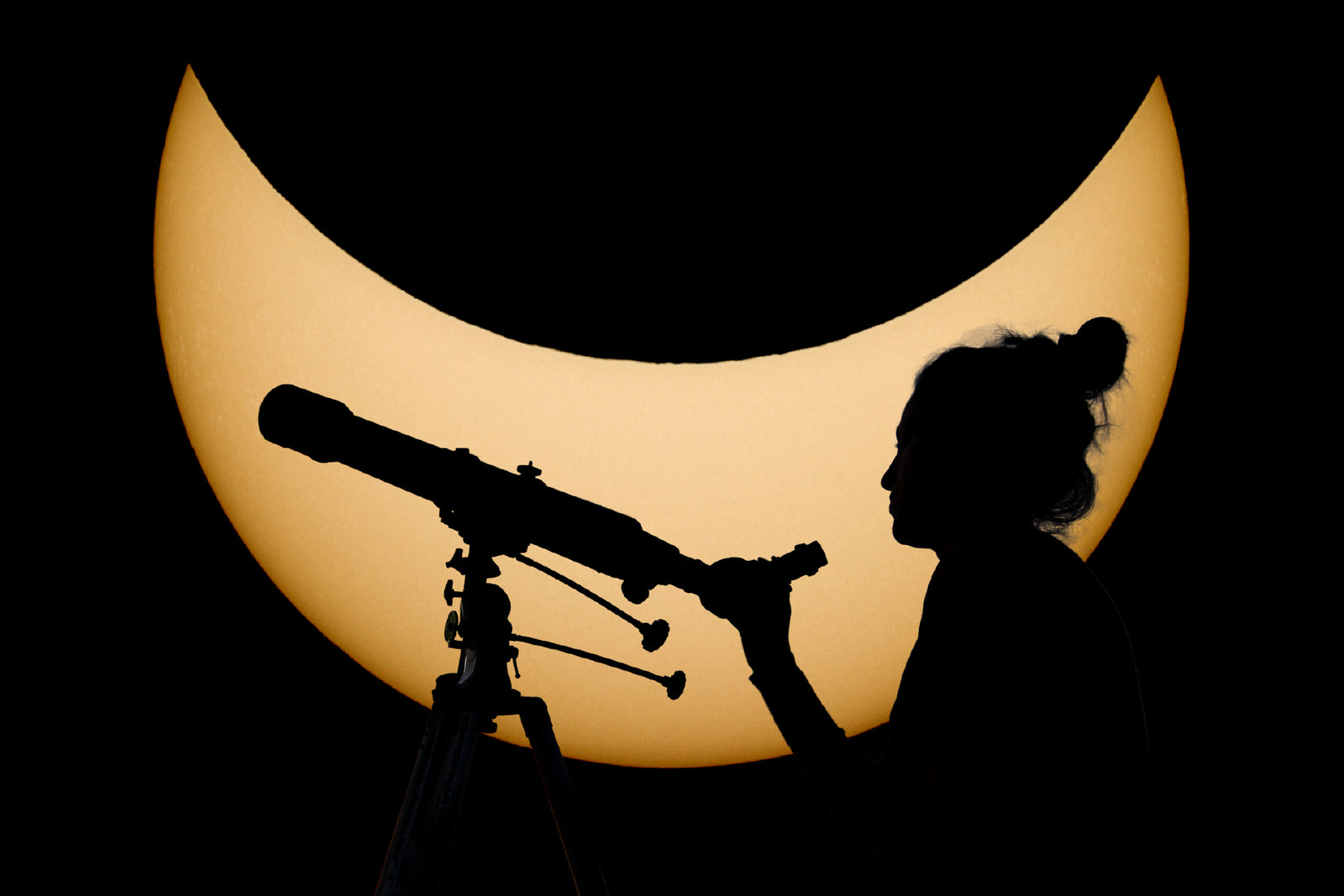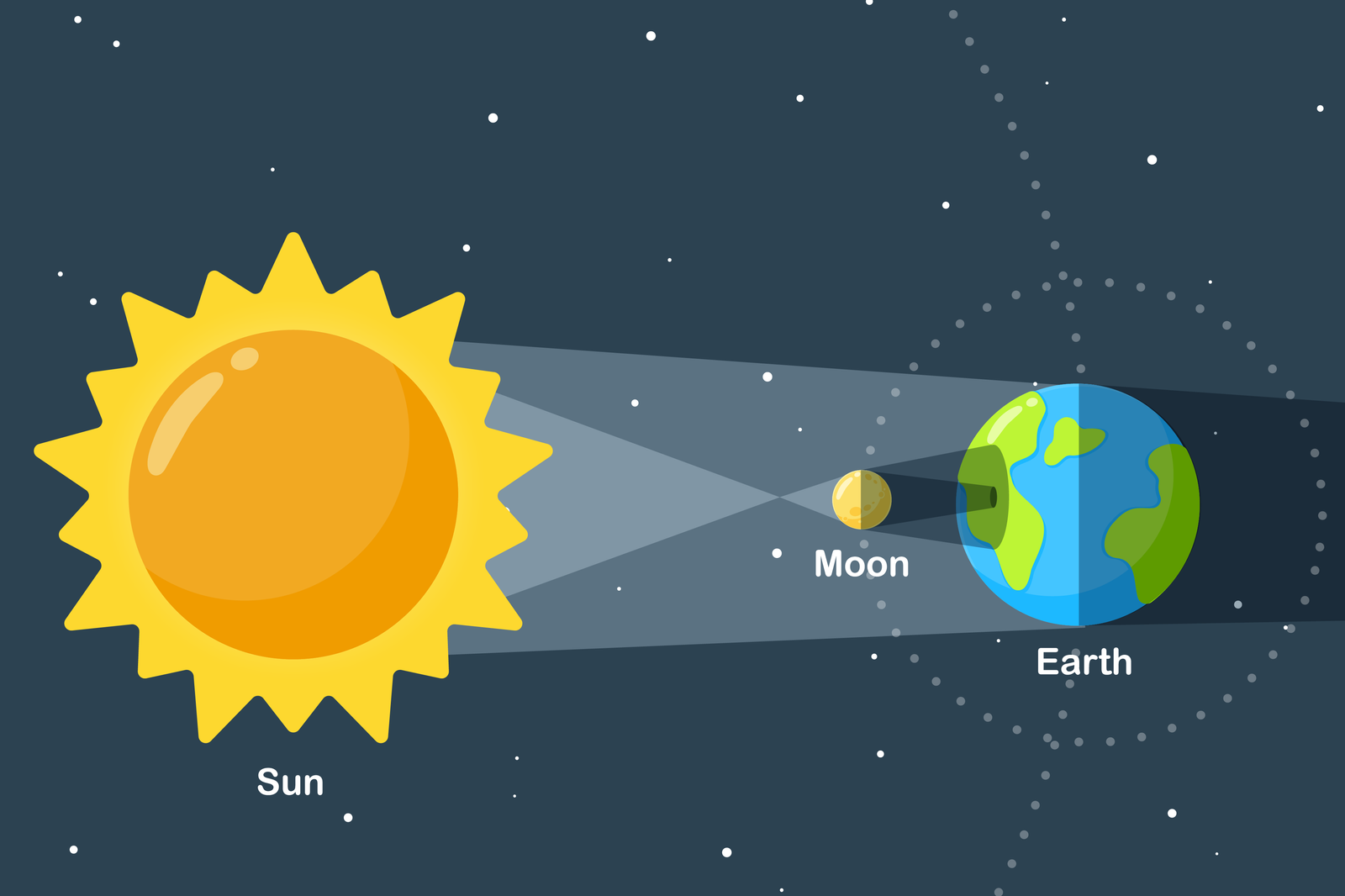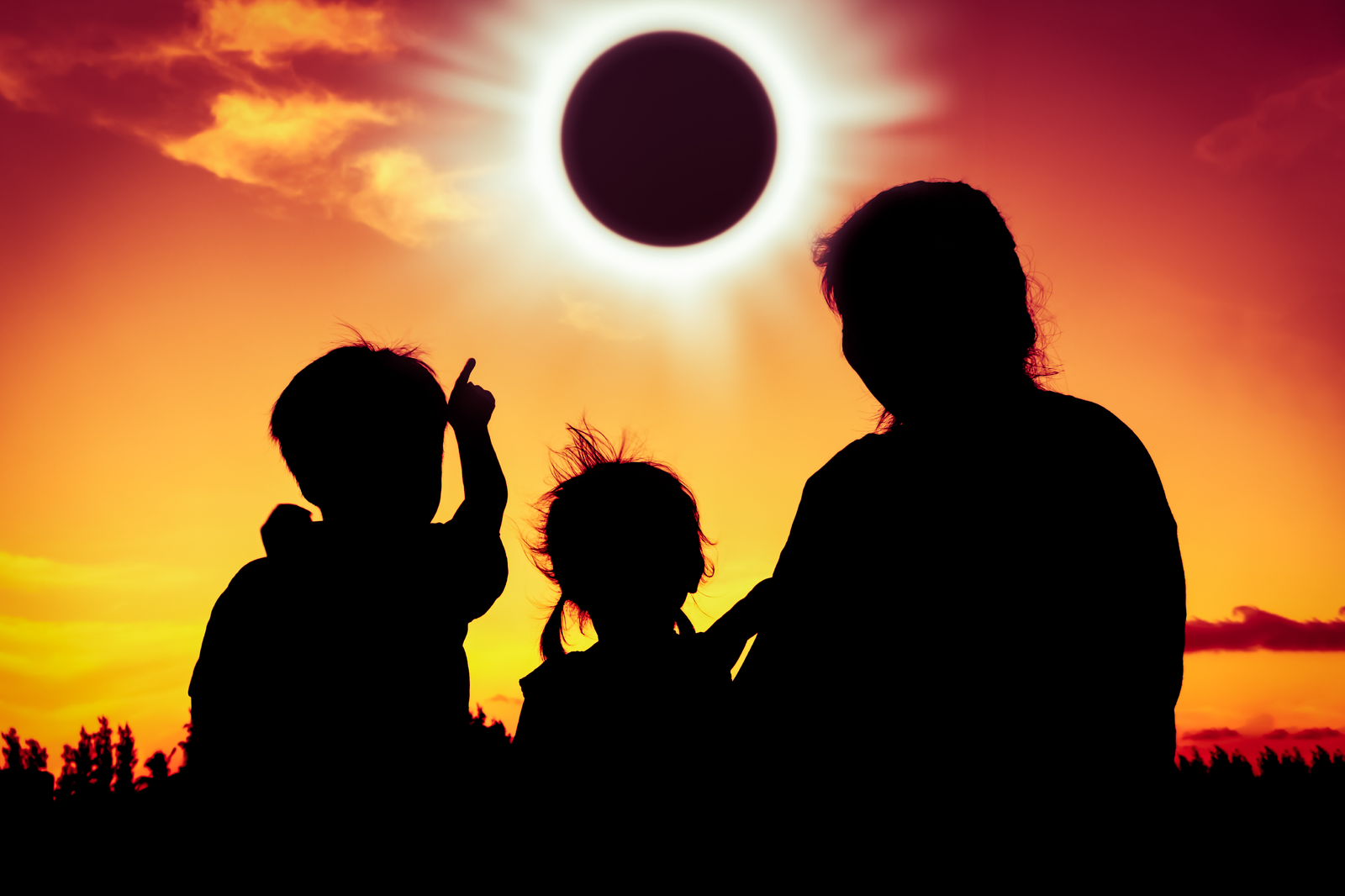Let's explore the captivating history and culture surrounding the awe-inspiring phenomenon of solar eclipses, transcending the scientific lens to reveal the rich tapestry woven by these celestial events throughout human civilizations. 
Examining some of the captivating history, culture, and myths surrounding the awe-inspiring phenomenon of solar eclipses, transcending the scientific lens to reveal the rich tapestry woven by these celestial events throughout human civilizations, to present day:
Ancient Mythology
In antiquity, solar eclipses were interpreted as cosmic omens, influencing shifts in power and the rise and fall of empires. The dance of light and shadow in the heavens became a canvas for divine messages, inspiring civilizations to craft myths and legends around these celestial occurrences.
-
Ancient Greeks: Interpreting solar eclipses as divine displeasure, the Greeks performed rituals and sacrifices to appease the gods.
-
Ancient Romans: Viewing solar eclipses as ominous signs, the Romans conducted rituals to mitigate perceived negative effects.
-
Ancient Chinese: Associating eclipses with a celestial dragon, the Chinese engaged in rituals involving loud noises to restore sunlight.
-
Ancient Syrians: Solar eclipses were potent omens influencing rulers and politics, shaping decisions and actions.
-
Ancient Druids: Reverent of celestial phenomena, the Ancient Druids likely regarded solar eclipses as spiritually significant events.
-
Ancient Egyptians: Believing a celestial serpent temporarily consumed the sun, the Egyptians engaged in rituals to protect their solar deity, Ra.

-
Ancient Nordic Tribes: Interpretations by Nordic Tribes, including the Vikings, likely saw solar eclipses as cosmic events with mythological significance.
-
Ancient West Africans: Deeply connected to nature, Ancient West Africans likely interpreted solar eclipses within their spiritual and cultural frameworks.
-
Ancient Aztecs: The Aztecs considered solar eclipses as the temporary death of the sun god Huitzilopochtli, engaging in elaborate ceremonies to prevent permanent extinguishing.
-
Ancient Babylonians: Associating solar eclipses with omens, Babylonians believed they foretold the fate of kings.
-
Ancient Persians: Perceiving solar eclipses as battles between light and darkness, Persians conducted rituals to protect their kingdom.
-
Ancient Inca Civilization: Inca civilization may have linked solar eclipses to the sun god Inti, conducting ceremonies for the sun's continued favor.
-
Ancient Sumerians: Sumerians associated solar eclipses with divine messages, leading to rituals for favor and averting calamities.
-
Ancient Japanese: Japanese cultures believed solar eclipses were caused by mythical creatures, prompting rituals to restore balance.
-
Ancient Indian Civilization: In ancient India, solar eclipses were seen as inauspicious events, leading to increased religious observances.
-
Ancient Mayans: The Mayans viewed solar eclipses as significant celestial events with religious and symbolic implications, conducting rituals for the sun's return.
-
Ancient Mesopotamians: Mesopotamians associated solar eclipses with the struggle between gods and demons, conducting rituals for protection.
One famous instance dates back to 585 BCE, during the Battle of Thales, when a solar eclipse led to an abrupt ceasefire, highlighting the profound impact of these events on human history.Culturally, solar eclipses have been celebrated, feared, and revered globally. In ancient China, the belief in a celestial dragon devouring the sun led to drumming and pot-banging to scare it away. The Vikings attributed these events to sky wolves, while Hindu mythology tells of the demon Rahu swallowing the sun. Throughout history, indigenous cultures have held diverse beliefs about solar eclipses, viewing them as moments of reflection or spiritual significance. Some modern Indigenous communities continue to revere solar eclipses, incorporating traditional ceremonies connecting to their cultural and spiritual heritage.
Modern Times
In the modern Western world, solar eclipses are primarily studied scientifically, offering valuable data about celestial mechanics. Advanced technologies, such as space probes and telescopes, allow astronomers to observe the sun's outer atmosphere. In some modern Islamic societies, solar eclipses are viewed as reminders of divine power, prompting increased prayers and reflections. In Hinduism, solar eclipses signify times for spiritual cleansing, leading to special prayers and rituals. Modern Japan views solar eclipses as opportunities for reflection and spiritual growth, engaging in traditional rituals and festivals.
Astrological Interpretations
Some interpret solar eclipses through astrology, believing these events influence personal and global energies, leading to astrological readings and predictions. In astrological terms, a solar eclipse marks a powerful moment of celestial alignment, symbolizing new beginnings and transformative energies. Astrologers view solar eclipses as potent catalysts for personal growth, urging us to embrace change and opportunities.
In astrological terms, a solar eclipse marks a powerful moment of celestial alignment, symbolizing new beginnings and transformative energies. Astrologers view solar eclipses as potent catalysts for personal growth, urging us to embrace change and opportunities.
The solar eclipse on April 8, 2024, in Aries amplifies transformative potential, encouraging courage, bold initiatives, and personal empowerment.
As we navigate the cosmic currents of the April 8, 2024 solar eclipse, the astrological alignment encourages a collective embrace of change, innovation, and authentic self-expression.
Aries' dynamic influence inspires bold initiatives, setting the stage for transformative growth and a cosmic dance toward brighter horizons. The enduring fascination with these celestial wonders serves as a testament to our eternal connection to the ever-changing dance of celestial bodies.
May your curiosity be as boundless as the cosmos itself!


















 In astrological terms, a solar eclipse marks a powerful moment of celestial alignment, symbolizing new beginnings and transformative energies. Astrologers view solar eclipses as potent catalysts for personal growth, urging us to embrace change and opportunities.
In astrological terms, a solar eclipse marks a powerful moment of celestial alignment, symbolizing new beginnings and transformative energies. Astrologers view solar eclipses as potent catalysts for personal growth, urging us to embrace change and opportunities.



